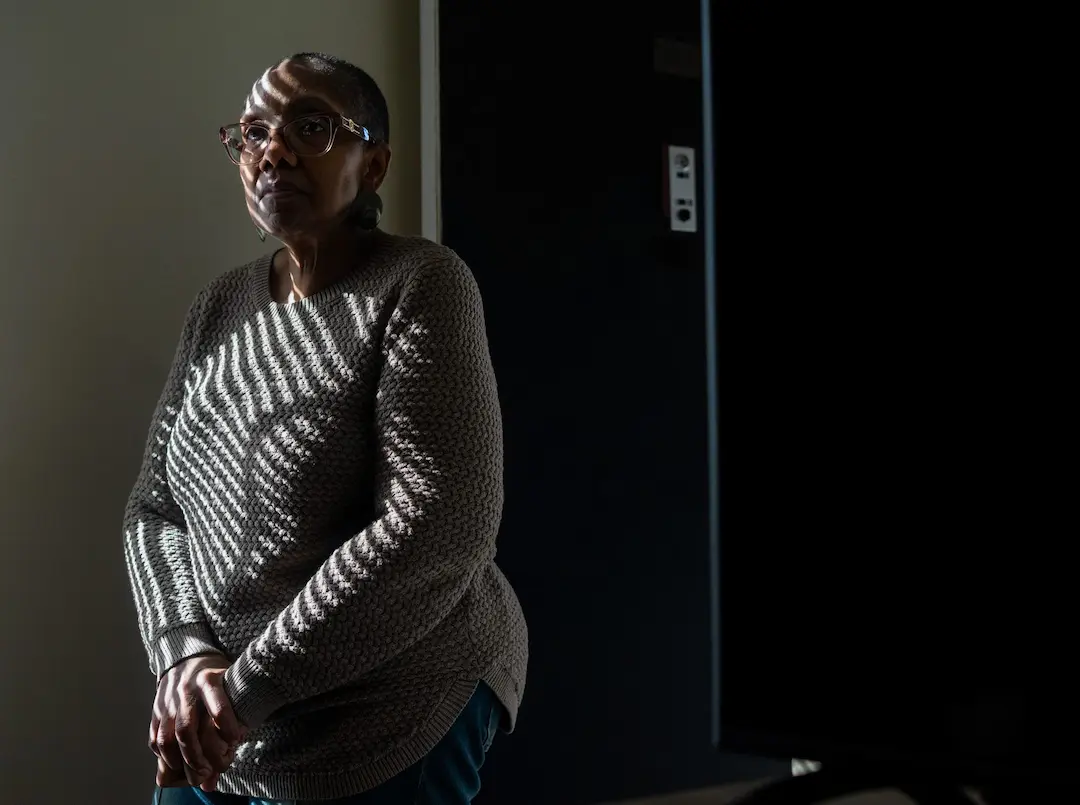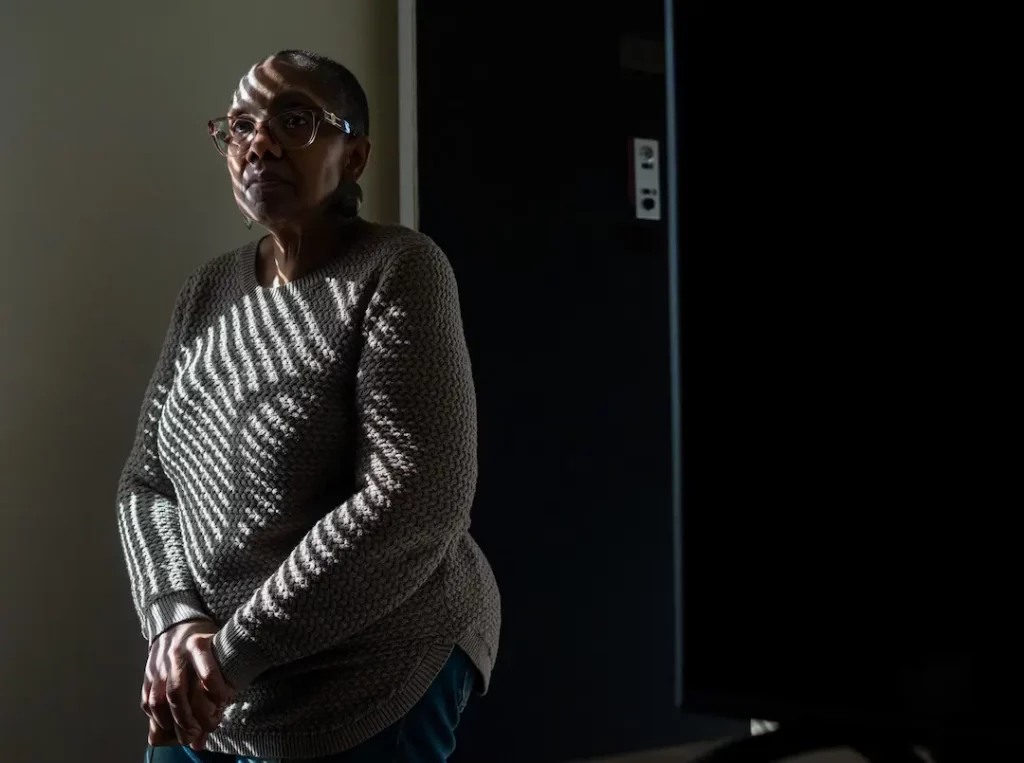Vera’s Story: When Life’s Plans Take an Unexpected Turn

Let me tell you about Vera Steward. She’s one of those people who lights up a room with her laughter, the kind that bubbles up from her chest and spills into the air like a catchy tune you can’t help but hum along to. At 64, Vera had envisioned her retirement as a blend of morning walks with her golden retriever, Daisy, gardening in her little backyard oasis, and the occasional road trip to explore the hidden gems of America. It was supposed to be a time of peace, a well-earned break after decades of hard work. But life, as it often does, had other plans.

A Sudden Twist of Fate
Vera’s retirement plan wasn’t extravagant. She lived modestly, relying on her fixed income from Social Security and a small pension. Her budget was tight but manageable. Then, three months after she turned 64, her world flipped upside down with a diagnosis she never saw coming: a rare autoimmune disorder that required lifelong treatment.
“Honestly, I thought it was just stress,” Vera told me when we met at her kitchen table. Her voice was calm, but her eyes betrayed the weariness of someone carrying a heavy burden. “You spend your whole life thinking, ‘That won’t happen to me.’ And then one day, it does.”
The medical bills started piling up like an avalanche—one she couldn’t outrun. Despite Medicare, the out-of-pocket costs for specialists, medications, and treatments ate through her savings like termites through wood. Suddenly, the nest egg she’d carefully nurtured wasn’t enough.
Regret No. 1: Not Preparing for the Unpredictable
“I never thought I’d be one of those people,” Vera confessed, her voice tinged with regret. “You know, the ones who end up choosing between groceries and prescriptions. But here I am.”
Vera admitted she didn’t plan for unexpected medical expenses. “I figured Medicare would cover most of it,” she said with a rueful laugh. “Spoiler alert: it doesn’t.”
She’s not alone. According to recent studies, nearly 40% of retirees face financial hardship due to medical costs. It’s a sobering statistic, especially when you consider how many of us brush off the idea of long-term care insurance or emergency medical savings.
“I wish I’d started saving earlier,” Vera said. “Even just an extra $50 a month might’ve made a difference. But when you’re in your 30s or 40s, retirement feels so far away. You’re too busy living paycheck to paycheck or saving for a house, a car, or your kids’ college. Who’s thinking about medical bills then?”
Regret No. 2: Working Too Hard, Too Long
Interestingly, Vera also regrets the flip side of the financial planning coin: working too much.
“For years, I was obsessed with saving for retirement,” she said, shaking her head. “I stayed late at the office, skipped vacations, missed family dinners. And now? I wish I hadn’t. I mean, what was the point? I saved all that money, but I can’t enjoy it because it’s going straight to hospital bills.”
Her words hit hard, like a gut punch wrapped in a reality check. How many of us sacrifice time with loved ones, chasing the illusion of financial security, only to realize too late that life isn’t just about numbers on a spreadsheet?
The Emotional Toll of Financial Struggles
It’s not just the financial strain that weighs on Vera—it’s the emotional toll. “I feel like a burden,” she admitted, her voice barely above a whisper. “My daughter helps when she can, but she has her own family to take care of. And I hate asking for help. It’s humiliating.”
This is a sentiment shared by many older Americans. A recent survey found that 60% of retirees worry about being a financial burden to their families.
“I hate that I can’t spoil my grandkids the way I want to,” Vera said, tears welling up in her eyes. “I used to dream about taking them to Disneyland or buying them something special for their birthdays. Now, I’m lucky if I can afford a card.”
A Call to Action
Vera’s story is a wake-up call—a reminder that life is unpredictable and often unfair. It’s also a testament to resilience. Despite everything, she hasn’t given up. She’s started a side hustle selling handmade jewelry online. “It’s not much,” she said, “but it helps. And it keeps me busy, which is good for my sanity.”
So, what can we learn from Vera’s experience?
- Start saving early. Even small contributions add up over time.
- Educate yourself about Medicare and supplemental insurance. Don’t assume everything will be covered.
- Prioritize balance. Don’t work so hard that you miss out on life’s precious moments.
- Have an honest conversation with your family. It’s not easy, but discussing financial plans and potential crises can save a lot of heartache later.
Closing Thoughts
As I left Vera’s house, I couldn’t stop thinking about her. Her story isn’t just hers—it’s a reflection of a growing reality for many older Americans. It’s a reminder to cherish what we have, prepare for the worst, and, most importantly, live fully in the moments we’re given.
Because if there’s one thing Vera taught me, it’s this: Life doesn’t wait for you to be ready. So, be ready anyway.
Let me know your thoughts—have you or someone you know faced a similar challenge? Share your story in the comments below. Let’s keep this conversation going. 💬
Saeed Ashif Ahmed
Co-Founder and Director of Rabbit Rank LLC, which is recognized as one of the most reliable digital marketing companies in the industry.
Related Articles

Beating Yourself Up Over Money? Here Is How to Fix It (According to Reddit)
Have you ever looked at your bank account and felt a knot in your stomach? maybe you looked at a student loan bill and realized it was way bigger than…

Why Don’t Big Banks Push American Express Cards Anymore? (Reddit Users Explain)
Have you ever tried to use your Amex card and been told, “Sorry, we don’t take American Express”? You’re not alone. A recent Reddit thread blew up with users asking…

The dark fantasy world of Berserk: What the first page tells us about the journey ahead
Kentaro Miura’s Berserk is widely hailed as one of the most influential series in the powerful dark fantasy genre in manga history. From its stunning art to its deep philosophical…